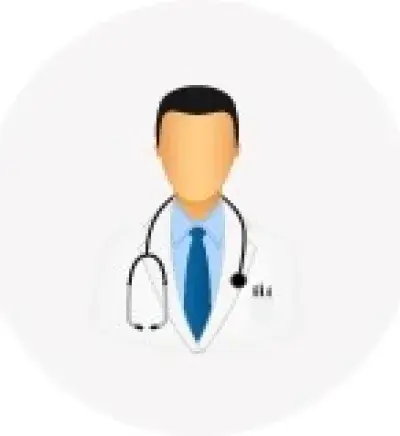Could not find what you are looking for?
Best Cardiologist in delhi
Dr Gautam Niloba Naik
12+ Years ExperienceSelect Date
-
Loading available days...
Available Slots:
Dr. Gautam Naik is a highly experienced Senior Consultant Interventional & Structural Cardiologist based in South Delhi, with over 12 years of expertise in the field of cardiology. He holds an...
Dr K K Kapur
38+ Years ExperienceSelect Date
-
Loading available days...
Available Slots:
Dr. K. K. Kapur is a highly experienced Cardiologist based in South Delhi, with over 38 years of clinical excellence in cardiology. He holds prestigious qualifications including an MBBS, MD in...
Dr K K Saxena
33+ Years ExperienceSelect Date
-
Loading available days...
Available Slots:
Dr. K K Saxena is a highly experienced Cardiologist based in South Delhi, Delhi, with an impressive tenure of 37 years in the field of cardiology. He holds advanced qualifications including MBBS, MD...
Dr Pradeep Jain
29+ Years ExperienceSelect Date
-
Loading available days...
Available Slots:
Dr. Pradeep Jain is a highly experienced Cardiologist based in South Delhi, with an impressive 29 years of dedicated practice in the field of cardiology. He holds an esteemed academic background...
Dr Prashanta Kumar Ghosh
43+ Years ExperienceSelect Date
-
Loading available days...
Available Slots:
Dr. Prashanta Kumar Ghosh is a leading Cardiologist based in South Delhi, with an impressive 43 years of experience in the field of cardiology. He holds advanced medical qualifications including an...
Dr S N Pathak
17+ Years ExperienceSelect Date
-
Loading available days...
Available Slots:
Dr. S N Pathak is a highly experienced Cardiologist based in South Delhi, with a robust experience of 17 years in the field of cardiology and internal medicine. He holds prestigious qualifications...
Dr Prof Sanjay Tyagi
40+ Years ExperienceSelect Date
-
Loading available days...
Available Slots:
Dr Prof Sanjay Tyagi is a distinguished Cardiologist based at Apollo Hospitals Delhi. With an impressive 40 years of experience in the medical field, he has dedicated his career to providing...
Dr Mahesh Chandra Garg
44+ Years ExperienceSelect Date
-
Loading available days...
Available Slots:
Dr. Mahesh Chandra Garg is a highly experienced Cardiologist based in Delhi, with an impressive 44 years of practice in the field of cardiology. As a distinguished member of the Apollo network, Dr...
Dr Rajeev Kumar Rajput
30+ Years ExperienceSelect Date
-
Loading available days...
Available Slots:
Dr. Rajeev Kumar Rajput is a distinguished and highly experienced Cardiologist based in Delhi, with over 30 years of dedicated service in the field of cardiovascular medicine. Known for his precise...
Dr Rajiv Mehrotra
26+ Years ExperienceSelect Date
-
Loading available days...
Available Slots:
Dr. Rajiv Mehrotra is a seasoned Cardiologist based in South Delhi, bringing over 26 years of dedicated experience in the field of cardiology. A gold medalist in MD and a super-specialist with a DM in...










